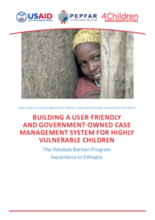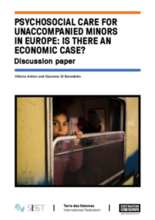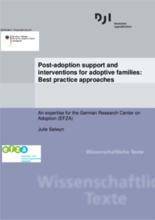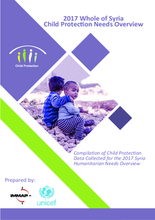Displaying 301 - 310 of 525
This article describes and evaluates a model utilizing Child-Parent Psychotherapy (CPP) to minimize the impact of early trauma for infants and toddlers removed from parental care.
This case study describes the coordinated care and case management system for highly vulnerable children and their caregivers implemented by the Yekokeb Berhan program in Ethiopia.
The goal of this study is to describe the population treated in therapeutic residential care (TRC) facilities in Spain and the therapeutic coverage given.
This study employed event-related potentials (ERPs) to examine the neural correlates of facial emotion processing in 12-year-old children who took part in a randomized controlled trial of foster care as an intervention for early institutionalization.
This study explored the experiences of adoptive parents who chose to place their intercountry adopted child in out-of-home care due to the child's disability.
In this empirical analysis of kinship caregivers and children from the Special Issue on Kinship Care of the Child Welfare Journal, researchers sought to determine the protective factors that mediate against risks and produce optimal levels of child well-being for children being cared for by kinship caregivers in the US.
This study examines signs of reactive attachment disorder and disinhibited social engagement disorder at age 12 years in 111 children who were abandoned at or shortly after birth and subsequently randomized to care as usual or to high-quality foster care, as well as in 50 comparison children who were never institutionalized.
This document aims to provide an overview of the scope of activities of the International Organization for Migration (IOM) in relation to the protection of unaccompanied migrant children and support for this group.
This rapid literature review was commissioned by the German Research Centre on Adoption (EFZA) located at the German Youth Institute in Munich (Germany). The overall aim of the review was to consider the support needs of domestic and intercountry adoptive families and the evidence for effective interventions. Step-parent, relative and domestic private adoptions were excluded.
This document provides analysis of child protection needs and risks at the government level to support child protection actors in programmed development, resource mobilasation and advocacy.




